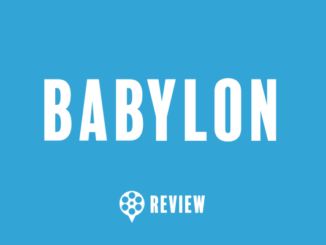Whether it’s because of The Sixth Sense, Signs, or Unbreakable, M. Night Shyamalan, is a household name. With his overwhelming plots and unexpected twists, he has become a king of suspense in his own right. But, Shyamalan’s resume has taken a few hits over the years. In fact, the better half of the decade has seen him put out a decent film or two with duds clouding the rest. It was like this for a long time until 2017 with the release of Split about a man exhibiting multiple personalities. Split brought back Shyamalan into the spotlight.
Split is what happens when a director is in his element, and on his game, and it was, and remains one of Shyamalan’s’ best films to date. I’d even say one of his top three films. Its suspense was textbook for the director and was arguably his best work in years. But it wasn’t until we reached the ending of Split that we were given our greatest twist when we saw David Dunn in that diner revealing that Split was a long-awaited sequel to 2000’s Unbreakable. Audiences knew to expect that the third film in his superhero trilogy would be coming soon.
With the success of Split, Shyamalan got to work, and now we have that third installment of what is being referred to as the “Eastrail 177” trilogy. Glass sees Samuel L. Jackson, and Bruce Willis returning to reprise their roles as Elijah Price and David Dunn from Unbreakable, along with the return of James McAvoy returning as Kevin Wendall Crumb, or as he’s referred to when he’s in Beast mode as “The Horde”. 
Glass fills in the holes where Split and Unbreakable did not, and serves as a bridge to connect its two predecessors. Its plot moves a lot faster than its counterparts, making it a lot more overwhelming early on, as if it was meant to serve as an entire climax for a movie. Glass picks up almost right where Split left off taking place just three weeks later. We find “The Horde” (McAvoy) up to his antics again, as he has taken captive four cheerleaders. David Dunn (Willis), now pursuing hero vigilantism as a profession catches wind of the girls’ whereabouts after bumping into “Hedwig” (one of Crumb’s many personalities) in the street. After an encounter with “The Beast” (Crumb’s most visceral personality), Dunn finds himself locked up in a psych ward, alongside Kevin, and Elijah Price, who has been there since the events that transpired in the first film.
For the first hour and fifteen minutes, Glass was everything I had hoped it would be. It was forming a common thread that was connecting the trilogy together nicely. The film’s final act is what derailed it. Overwhelming the audience and keeping them in suspense is something that works well with Shyamalan as a director but not this time. Glass‘ climax is jumbled. For every ten minutes, there seemed to be one twist after another that simply accumulated into mush to a film that should have otherwise been a great close to what has been a great film series. The last thirty minutes of this film just washed it away. There was simply too much going on, and the subtle charm that Shyamalan presents in the first two films is nowhere to be found here.
With all that I said, Glass does have redeemable qualities. McAvoy, Willis, and Jackson, all turned in excellent performances, and there are many snippets of what could have been a good movie scattered in there in its first and second acts, but its conclusion gave us EVERYTHING and too much nothing with no real payoff. It’s a film that went from being really, really good, to just. Decent. In the end, Glass is the movie that I really wanted to like but missed its mark.




